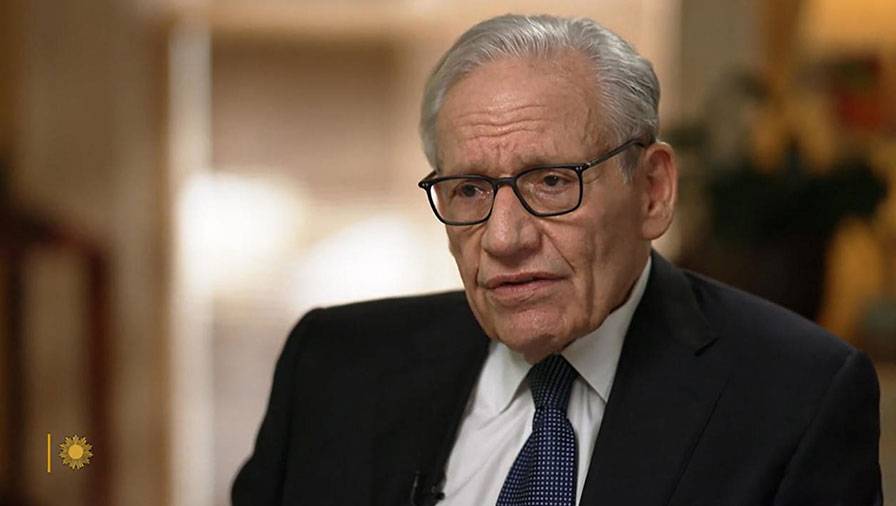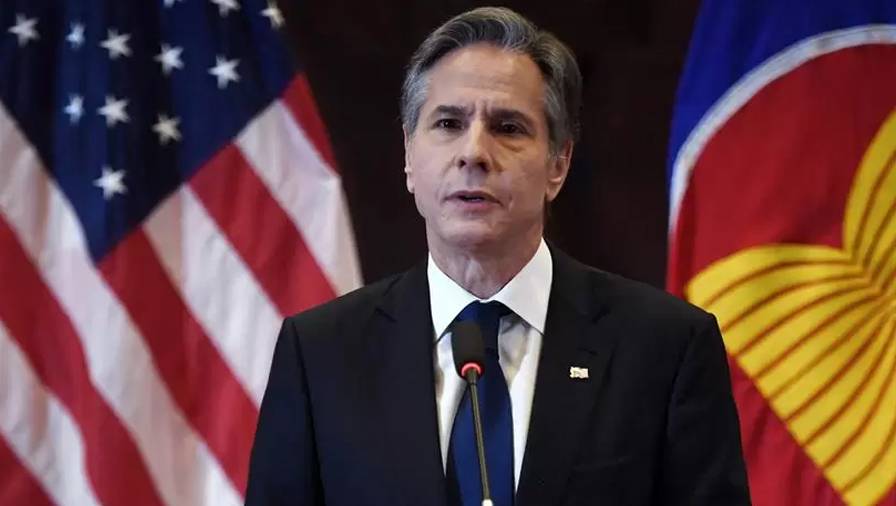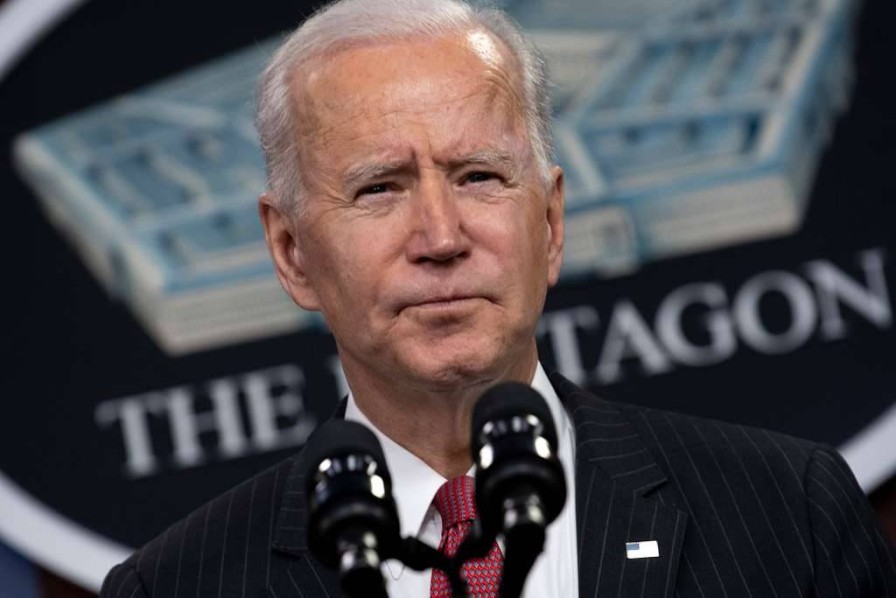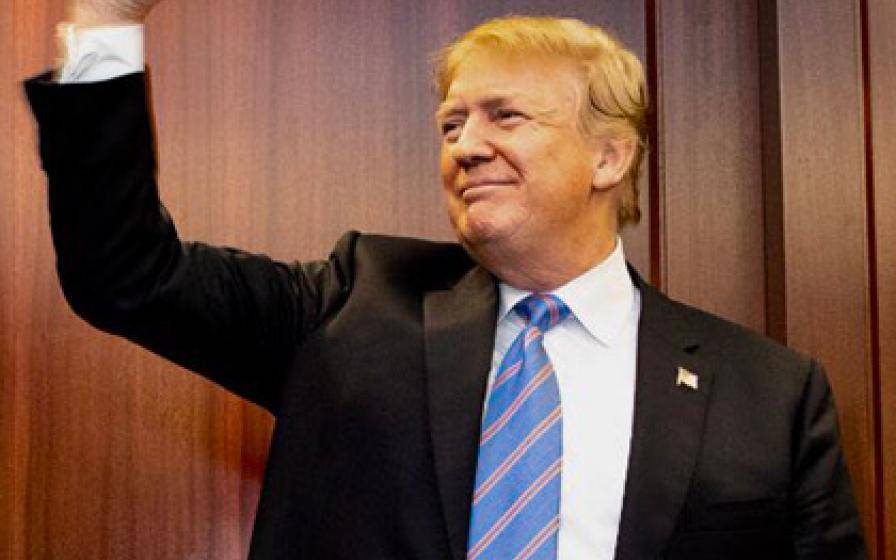Biden’s legacy: Fighting wars without troops
The inside story of the security committee that runs US foreign policy.
War, by Bob Woodward.
The inside story of the security committee that runs US foreign policy.
War, by Bob Woodward.
For the past four years, the White House has been on a war footing without committing any troops on the ground of a conflict zone. Foreign policy was controlled by a small group appointed by President Joe Biden, who narrowly beat incumbent Donald Trump in the 2020 elections.
That result was overturned this week when Trump was re-elected as the 47th president, setting the US on a different path to that under Biden.
The doyen of American political writers is Bob Woodward, co-chronicler with Carl Bernstein of the Nixon years and its most famous scandal, Watergate. Woodward has since published some 20 books, most them containing one-word titles.
His latest is War, which not surprisingly starts with the January 6, 2021, storming of the Capitol building by Trump supporters. This also featured in Woodward’s previous book, Peril (2021), co-authored with Robert Costa, about the transition from Trump to Biden.
A vice-president to Barack Obama for two terms, Biden had long harboured ambitions to be president despite being in his late 70s. Trump’s legacy was a chaotic period, in which the Covid-19 pandemic was at its peak and showed no sign of abating.
Biden had promised a period of reset and stability for both the US and the world. But, within three months, Biden's national security adviser Jake Sullivan had some bad news.
It wasn’t about the imminent withdrawal from Afghanistan, which was the administration’s first disaster, but another foreign policy threat no-one was expecting. Satellite intelligence reports showed an unprecedented buildup of 100,000 Russian troops along the border with Ukraine.
Sullivan, 44, was the youngest man in the role since Henry Kissinger. Russian President Vladimir Putin had already showed an aggressive stance toward the US and there was: the poisoning of opposition leader Alexei Navalny (who later died in custody); interference in the 2020 elections; suggestions that Russia was paying the Taliban to kill Americans in Afghanistan; and the cyberattack on software company SolarWinds that caused a major global computer outage.

Author Bob Woodward. Image: CBS Sunday Morning.
On top of this, Biden had given his opinion of Putin in a TV interview. Biden famously said he believed Putin was a killer and contradicted a reference President George W Bush had made about the Russian’s ‘soul’. Biden said: “Mr Prime Minister [Putin’s title at the time], I’m looking into your eyes, I don’t think you have a soul.”
Biden had no reason to change his mind. By the end of the year, and five months before it happened, the US had warned Ukraine President Volodymyr Zelensky, its European allies, and anyone else who would listen that Russia would start the largest land war since 1945.

US Secretary of State Antony Blinken.
Without intending it, Biden had put the US on a war footing that was to last until the end of his presidency. Sullivan was part of a core team that also included his deputy, John Finer; CIA director Bill Burns; National Intelligence director Avril Haines; Secretaries of Defence and State Lloyd Austin and Tony Blinken; and former chair of Joint Chiefs Mark Milley.
Their job, as Woodward describes it, was to make efforts and decisions to prevent war, and where war came, to avoid escalation. Woodward appears to have interviewed all of them and, in his familiar formula, reproduces in 77 brisk chapters the conversations they held in making those decisions.
Other conversations are also reproduced, including those where a public record exists, to give a range of perspectives, including those of Trump, who had launched his campaign to regain the White House as early as mid-2021.
On October 7, 2023, the security team added Israel to its agenda after Gaza’s Hamas jihadists launched their unprovoked attack on civilians across the border. Throughout, Woodward depicts Biden as convinced the US, except if attacked, should not solve foreign policy problems by committing troops.

President Joe Biden.
That meant none in Ukraine or Israel. But that did not stop the US from providing massive intelligence support and billions of dollars in military assistance, even when its advice was ignored, as was consistently the case in Israel.
That remained the situation until the book’s cutoff in September and before Israel launched its full-scale war against Hezbollah in Lebanon and direct attacks on Iran. Biden’s view of Benjamin Netanyahu is often expressed in four-letter words, mainly of his lack of concern for civilian casualties.
The record points to Israel’s more aggressive stance being more likely to dictate a military outcome than Biden’s cautionary approach and lack of success in ceasefires. Nevertheless, Woodward has nothing but praise for the US security team, which he says will be Biden’s main legacy.
“They brought decades of experience as well as basic human decency. War shows the traditional and novel ways Biden and his core team pursued an intelligence-driven foreign policy to warn the world that war was coming in Ukraine, to supply Ukraine with the weapons they need to defend themselves against Russia, and to try to damp down escalations in the Israel-Gaza war.”

Donald Trump.
It’s an accurate summary, and one Woodward says will be studied in history as an example of steady and purposeful leadership. The story, of course, isn’t over and Woodward admits the book’s rushed publication just before an election is a reminder of Biden’s legacy.
War also gives Woodward the opportunity to cover other major events of the past year: the criminal and civil trials of Trump and Hunter Biden; the assassination attempt on Trump; and Biden’s decision to stand aside after the disastrous debate with Trump.
Critics have found it hard to question Woodward’s technique, which is akin to that of a Hollywood screenwriter, but easier to challenge his bias, which is honed by his long association with the Washington Post. It made news itself when owner and Amazon mogul Jeff Bezos overruled an editorial endorsement for Kamala Harris.
“Donald Trump is not only the wrong man for the presidency, he is unfit to lead the country,” Woodward declares. “Trump was far worse than Richard Nixon, the provably criminal president … Trump governed by fear and rage [also the titles of Woodward’s two books on Trump]. And indifference to the public and national interest.”
It turned out Bezos more accurately reflected the majority of American opinion than his media employees, who will no doubt spend the next four years doing the same as they did during 2017-20.
War, by Bob Woodward (Simon & Schuster).
Nevil Gibson is a former editor at large for NBR. He has contributed film and book reviews to various publications.
This is supplied content and not commissioned or paid for by NBR.